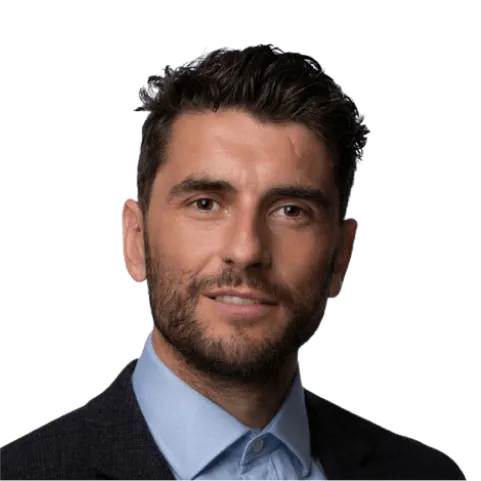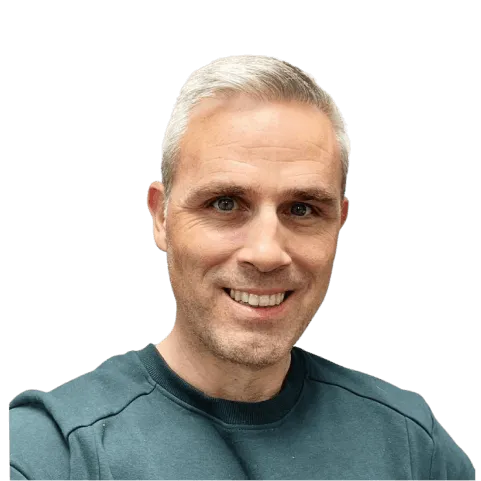


Key Points
Our three big takeaways from Niall's conversation with Paul Zak on human connection are
- Neural Diversity is the same as physical diversity - just because the habits or behaviours are the same doesn't mean the personality/person will be
- Psychological safety is key to creating an optimal environment to have a great experience (then measure the outcomes)
- The Tight 40 - hit work hard for eight hours then go home sleep
Let us know what you thought of the episode?
Transcript
Niall O'Carroll
You're a big fan of neurodiversity, maybe talk to me a little bit about that?
Paul Zak
Right, so I'm going to let you in on a dirty secret in neuroscience, which is when we measure brain activity, while people do a task, we will get an average on that.
But the variation on the average swamps that average, and they're very short sometimes because people do the task differently. Often, they do the task the same way and yet their brain activity is very different.
So that's a big mystery. In my academic lab, we have a fairly robust program now looking at what I call neural diversity; having people do a bunch of standard decision tasks, here's the average, let's start to sort them into the behaviour we see in the brain and work backwards and ask what is the brain activity telling us?
To give you a couple of interesting examples of that. Knowing about neuroanatomy tells us what to look for. A variety of neurochemicals inhibit some key responses we know about in ways that are unexpected.
Then we found many years ago was that women who are ovulating are less cooperative than women who are not ovulating and men.
Why is that?
Well, this hormone of ovulation and pregnancy, progesterone inhibits the action of oxytocin, this other chemical that motivates cooperation. And as a result, unconsciously, they just tend to be less cooperative.
That's the laboratory finding, we don't know if that really holds outside the lab.
Stress is a really powerful one. So as you know, Niall, there is an inverted u curve between stress and performance. If we don't establish baseline levels of arousal, stress levels arousal, then I don't know if you're past that peak of the yield curve, I don't know if you're too low.
You did that a ton of work as a coach, right? Where you've got to get people in that sweet spot where they're really performing their best. But if we push them too far, they're gonna choke. And so to me, that's a measurement issue primarily.
I think the scientific community has failed in terms of measuring enough stuff so that we really know what these conditionalities are, that influence behaviour.
Niall O'Carroll
People often say to me, ‘what's the key to high performance?’
I really believe that we are all individuals we are, we are all made up very similar traits, you know, and we can have similar personality types.
I think it's one of the fundamental flaws with psychometric testing, sometimes it's measuring what you believe your personality type is because you're answering questions along the lines of what you want the results to be.
My dad was an amazing character, and he's the most laid back man I've ever met. And I wanted to be laid back like my dad, I'm absolutely not. But I always believed I was. So if I was answering this psychometric questionnaire, I would want to be laid back. I would want to answer questions that would reflect that.
In the corporate world, psychometric testing is useful in that it gets us thinking about how we all work differently, and we can kind of adjust our work according to people's personality types.
But it still doesn't change the fact that five people in a room with exactly the same personality type are fundamentally different human beings.
Paul Zak
And our physiology is different, we may respond to the same environment and just different ways that we're not even aware of, because it's just the way I am. Right?
Niall O'Carroll
Exactly. Right.
What I love about the work you do is you measure things that very few people do.
You're trying to explain how we engage, how we engage with meetings, or how we engage in the workplace.
And what's our peak moments and what's our North Star?
You're looking at things that put metrics on for want of a better term soft skills, which I really struggle with. Because they're not soft skills are essential skills.
But where do you start with the mindset of measuring stuff when you're dealing with people are dealing with all their distractions? How do from a scientific point of view, where do you even begin creating data that leads you to kind of draw conclusions?
Paul Zak
I think the preamble to the answer that amazing question is how much of our lives are changeable?
Personality traits are largely genetically driven and that's hard to change, right?
A little bit.
But about 50% of the way we respond, the way we perform is, in fact, malleable.
That's where the measurement comes in. What we found over the last 20 years was, we could identify signals in the brain that in combination, would predict how well people would perform by identifying how much their brain values the experience they're having.
So if my brain is turned on by this, then I'm just gonna do it better. That's human nature.
Think about tennis. When you first learn to play tennis, or any sport, you're thinking a lot about it, right?
As you have to think about it you get better and better and it becomes what we call procedural memory.
Once I have some basic level of expertise, how do I take that to a high level? How do I get to be a tennis pro, or say, just a really good, you know, casual player?
I've got to get feedback. And so one way you get feedback is playing against people, particularly those who are better than you. And so you start seeing where you're missing, you're fighting those kinds of things.
What we found in Immersion was, if we measure what your brain values, when you get a reward response, you'll keep doing those things better. You acquire the information better when it's immersive, you're really sucked in, you're turned on by it, and it sticks in your brain.
I think what's really interesting if I'm allowed to say that about the work I've done myself, is that most of that value is emotional value. Measuring what your brain loves - which is just something we're able to do in the last 10 years - indicates ‘give me more of that’, ‘I'm just gonna get better at that’.
We know the brain is just like a muscle. Once I'm deeply immersed, once I'm really in that kind of zone, it's going to be exhausting, I can do that for maybe an hour, two hours.
In our data, we've seen peak immersion lasts for up to about 40 minutes, where you're just on, this is like a flow state, you're losing track of time, this is the most exciting thing. And then there's a real sense of exhaustion, but more typically in workdays, we see peaks and valleys.
If those peaks are associated with higher performance, which they are, then I want to think about where my peaks occur, right? Is that because I'm meeting with colleagues, because I'm working by myself, is it time of day is the day of week?
Then I think that impact for your work is, how do I raise that average level? How do I reduce the valleys? How do I make those peaks higher and or last longer? I think that's where coaching comes in. That's where feedback and technology comes in.
If I'm in the zone, keep me there, I don't want to get distracted out of that.
If I find that to between 10 and 12 in the morning, protect that time, that is your best time. And what happens between 3 and 5, well, maybe I need a coffee break.
Objective measurement of what the brain is doing is incredibly value for self knowledge, but also for organizational performance.
Niall O'Carroll
This is a labour love for me this conversation because you're speaking to everything that I believe in.
People will say, ‘we understand that psychology and mindset and mental skills are fundamentally important for our team's performance, where's the evidence that it works?’ We've developed almost a suspicion of the brain, even the very fact that we talk about mental or physical health because if you've got a mental illness, it's actually physical. There's a chemical imbalance in your brain.
For example, if you're stressed, what happens? You get headaches, your stomach is upset, you don't want to get out of bed.
If you have an athlete who goes out in a major championship and underperforms, they're dismissed as a choker.
If they go out in that championship, and they have a slight hamstring injury or they eat something wrong the day before and have an upset stomach, these are acceptable reasons for somebody not to perform.
I've worked with some unbelievably strong characters and sometimes they make bad decisions under pressure because they're human beings.
The work you do is exploring our optimum performance levels and our engagement levels. Maybe you can talk to me a little bit about that about the work you do and how it is fundamentally different to what's been done before.
Paul Zak
I think the essence of science and really reaching the science of high performance is measurement.
So what we're finding is really shorter, more intensive, training meetings, and group work are much more compelling. That is, people remember better, they perform better, they're objectively more productive in those bursts of activity.
This sounds like training an athlete to me, right? So it's short, repeated, intense, it's not long and drawn out, I guess it depends on the sport we're talking about.
One of the things you mentioned that we found, both with professional athletes, K-12, to college students, that psychological safety is the precursor to high performance.
Step one is to get focused, as you said, get comfortable enough in the setting that you're in, block out the other things going on in your life, be able to focus on, that psychological safety so that I have enough bandwidth in my brain so I can become immersed in that experience.
If I don't have that. Just stop right there and do maybe mindfulness meditation.
I think immersion gives you that peak level that elite-level performance, but for most people, it's really establishing the comfort zone where 'I'm focused'.
I think part of that is training the brain. I really think that as we bring these neuroscience technologies, currently to businesses, but eventually to consumers, the ability to have self-knowledge, and manage that self knowledge is going to be amazing.
The key here is measurement. And then the second key would be measuring the right things, we can't measure everything.
I've got to measure this ability to actually have a great experience of psychological safety.
And the second is, what's the type of experience am I having? Am I really immersed in this flow state? So those look like two super good questions that we can run with for the next 20 years, someone else will figure out other stuff to measure, we may do that, too. But at least for now, gosh, that's gonna get me three-quarters of the way home to reaching elite performance.
Niall O'Carroll
Measurement on any level gives you data to do something with.
Your book, which I'm thoroughly enjoying at the moment, The Moral Molecule is all about trust.
In the research, you did for your books? What is it that drives you? How would you measure success for your company? And the engagement you have with companies?
Paul Zak
I think the focus of my professional life in the last 20 years has been to create tools in understanding so that people can cure their lives for greater happiness.
Imagine if you could try a bunch of things and figure out what turned on your brain? It's hard to know, it's a hard question. I think we have we talked about this earlier, but we know we have this I call Freudian hangover, that just because your brain craves language, that if I just poke you enough, ask you the right questions, then the unconscious will become conscious.
But the science shows that this thing that really turns on my brain is largely unconscious and emotional. It doesn't leak out of our brains consciously. It takes us often many, many years to find the right say romantic partner, find the right kind of job, even recreational activities.
I think the ability to measure that faster means we can accelerate what we're doing. So from a teamwork perspective, the rule is diversity of brain activity, diversity of behaviour and not consistency.
If you're consistent then your brains not adapting to changing environments internal or external.
If I see a team member of mine, who almost always performs well and is having a bad day, we often jump to the fundamental attribution error and say, ‘Oh, well, she's a jerk’. No, actually 95% of the time, she's fabulous. But now she's cranky with me.
I think the first takeaway of measurement is just to expect weirdness.
Humans are weird, because we're just trying to adapt to all this stuff that's going on very rich informational environment that we've never really been in.
Give them feedback whenever possible, to say, ‘Hey, you know, seems like the last couple days you've been struggling’. There are some times when you need to have that sort of come to Jesus talk. And I've had people give it to me, and it made a big difference often.
I think there's never called for is there's no yelling. This is work. This is, you know, no one's dying here. Let's get it right. Let's talk about this constant feedback loop.
The interesting thing about immersion that was built in from the get-go, when we did the science on immersion is a Prediction Engine for behaviour. It's not a feeling engine, it's a Prediction Engine for behaviour.
If I'm interested in improving my own behaviour, or helping my team members do it, what I want to know is, how do I push on these levers to make it better? am I working too hard, if I push you past that inverted u curve for performance? Is it time for a break?
One thing we see in companies all the time is, you're working on a big project is a three-month project for this client, we finish it, we're so excited.
And the next day, I give you another giant three-month project, it's actually physiologically exhausting.Just like you said, it may not be a pulled hamstring, but it could be a pulled neuron, you know, you've just exhausted their system. So not just like the body is exhausted, the brain will get exhausted, too. And some of the indicators are bad behaviour. crankiness, poor sleep is a really good indicator. We know you can pull sleep data from all kinds of smart devices, people can begin to manage that.
Even investment banking, where it was common to have Junior associates work 100 hour weeks, saying 40 to 50 hours is plenty, hit it hard for eight hours then go home sleep,. There's something in the US called the tight 40.
Our data shows that individuals who work in high trust organizations, that really rely on colleagues and feel like they really care, not only did they perform better, but they shed the stress of work more rapidly.
If I'm exhausted or depressed, or stressed, because my family members sick, that's going to take bandwidth, and my performance is going to suffer. I think, as managers, we have to accept that everyone will not be a high performer every day or every second of the day. It's not gonna happen, right?
Nobody does that. Even Michael Jordan had bad days, right? Even Kobe Bryant had bad days. So things happen, that's okay. And that's a chance for reflection, I think it's a chance for coaching.
Niall O'Carroll
Hugely important point there.
And this is something and I want to talk to you about, leadership.
If you're a leader in an organization and you know there's somebody who will deliver for you, the tendency is to keep giving them stuff to do. The reality is that you end up overloading that and leaving everyone else on the team off the hook.
You mentioned Michael Jordan, and it makes me think Michael Jordan wouldn't have achieved what he achieved. without Scottie, Pippen. Steph Curry wouldn't have achieved that he would have Draymond Green.
There's a famous story about Tom Brady, accepting a pay cut so that the Patriots could hire a better defensive line, so the team would be better. It's understanding that the star player is not the person you go to all the time. It's the person you go to when you need to go to.
I think when you talk about trust, and you talk about values, I think it's a really important thing for leaders looking into the future world of work. One of the fundamental challenges for companies is how they identify leaders, and how they reward leaders and how they create leaders.
The traditional way of identifying the leader is somebody who's in the office the longest, right? The number one salesperson becomes a sales manager when the traits to be at number one salesperson are probably polar opposed to what a great leader is.
How do you identify and reward high performance in an environment people are at home, fewer in the office.
What is the, from your perspective, is the skill sets that companies need to think about for leaders that are going to change the game in the future and build trust for the corporate world?
Paul Zak
That's a great question.
I think this is where PepTalk and Immersion really combine.
Having data measurement is great, but then what do you do with it, you have to act on it.
I think it's difficult in a world in which we're seeing more and more generalists.
The's routinized tasks are getting automated through machine learning through robots. So we're really looking at the rise of generalists. So if I'm a generalist, I'm doing eight things every day. How do I know which of those things I'm best at? How do I begin to curate or so as a supervisor, curate people's work, so that they can really perform their best and get the satisfaction of really nailing something at that mastery?
I think that's measurement. But it's also now training so if I struggle with some kind of technology, you can potentially train me up on that technology, you could teach me how to use Salesforce.
But the old way is, hey, why haven't you done your Salesforce training? You don't like technology, or you're too old? Or you're maybe that training is just not designed very well for me. SI need a human to walk me through.
I think a great example is healthcare, which an area I know fairly well.
What we're seeing evolve in healthcare is more and more algorithms that are doing the diagnostics, because instead of a physician seeing hundreds of cases, you have millions and millions of records that a machine learning algorithm can pull from, to look at those conditionalities we talked about earlier, right? What are the modulating factors that lead to this particular presentation of symptoms.
At the same time, it allows physicians in general, to put more care into health care, right, so now the role of that caregiver is going to be explained what's happening to the patient and his or her family, talk about treatment options, why we think this is the best option, it's more high touch.
I think we're going to see that in many areas of business as well, in which what the humans will be doing will be really connecting to others and doing this work that is creative, that is personal, that is customized. And that's something that really requires being trained up on.
I think we're so used to just routinized behaviour. And we're really back to the question, we asked me the beginning about diversity?
A concrete example is call centres. We have a couple of call centres that are now using the Immersion technology. It’s a tough job, high turnover, they have a tool that allows them to understand when that client on the phone that they can't see in person is becoming frustrated.
And then you can just pop up to say, ‘hey, slow down, ask a question, use the client's name’, right, all kinds of ways they can modulate that. Honestly, who wants to talk to someone on the phone anymore. But if I have to do that, try to make it a pleasant experience for me.
If you have a great call centre experience, thank that person. It's a hard job. It's an unpleasant job, just say hey, you were really wonderful guys. You can make someone's day so that positive feedback is very important for leaders but for anybody, for your kids, give some positive feedback share a little love.
Niall O'Carroll
I love that. Yeah, I couldn't agree more with it.
The generation coming now and the generations coming after them have different expectations of a work experience. Surely the onus is on leaders to acknowledge that and figure out a way to get the most out of it rather than just dismiss it.
I love the fact that you're talking about care and I'm a massive believer of care in leadership. If we go back over centuries, leaders are people we trusted to take care of us to keep us safe to give us the best life possible. After the Industrial Revolution leaders became managers and managers became about measuring productivity.
Sometimes we make the mistake of thinking that care means that you can't have difficult conversations, or you can’t call someone out. In business, if you don't perform at some point, you will be caugh out, and you could be out the door.
The logical thing is that you create an environment in the business to give people the best opportunity to deliver a performance.
Paul Zak
I always tell my kids and my graduate students, because I care about you, I want you to get the hell out of my house or out of my class so you can go flourish.
I think it's really understanding how important each individual is, like the world population may peak now around 2040, we're not going to get a lot more humans, right?
What we want to do is get those humans trained up and coached in a way that they can actually perform well and get the great satisfaction of performing well.
There's always some confusion on happiness and productivity. But the data are pretty clear. Now it's not that happy people are more productive is that when you're productive, you get the satisfaction of having performed well. So give people all the tools to perform well, from measurement to coaching to feedback, that's what you need, otherwise, we're just kind of winging it.
Niall O'Carroll
I will pedal that message everywhere I go because I absolutely relate to it.
Paul, it's been fantastic, man. Really appreciate it.
Paul Zak
Also, you're the best man, anytime.
Niall O'Carroll
Okay, Paul, take care, mate. Talk to you soon.
Paul Zak
Thank you so much.
Latest Episodes


See PepTalk in action











